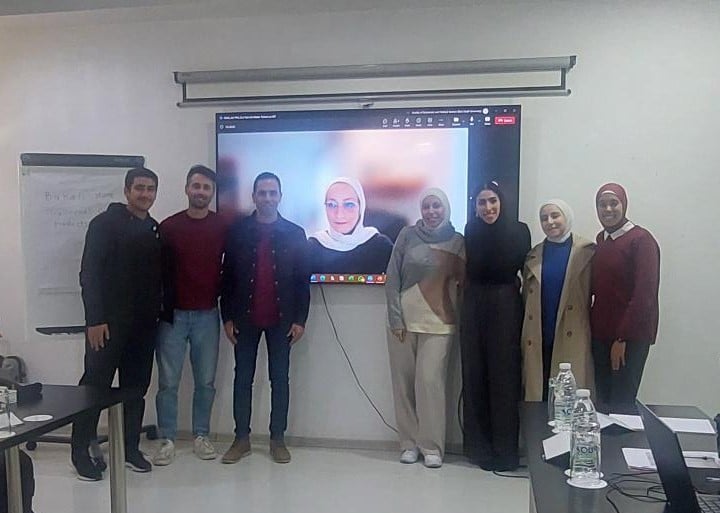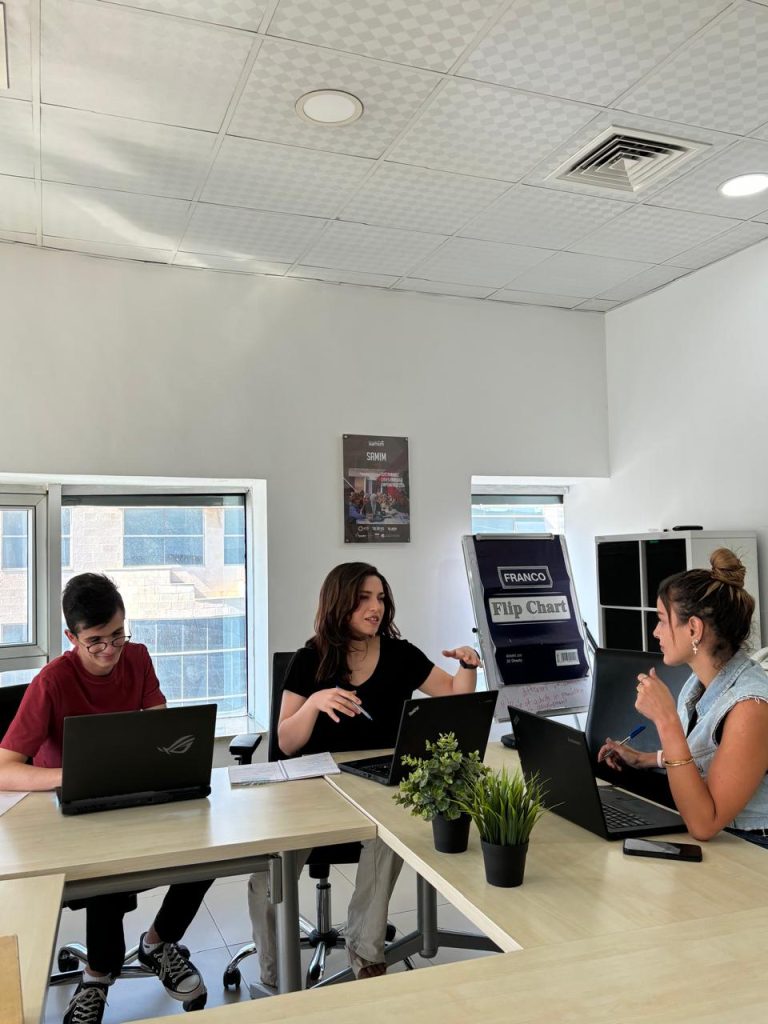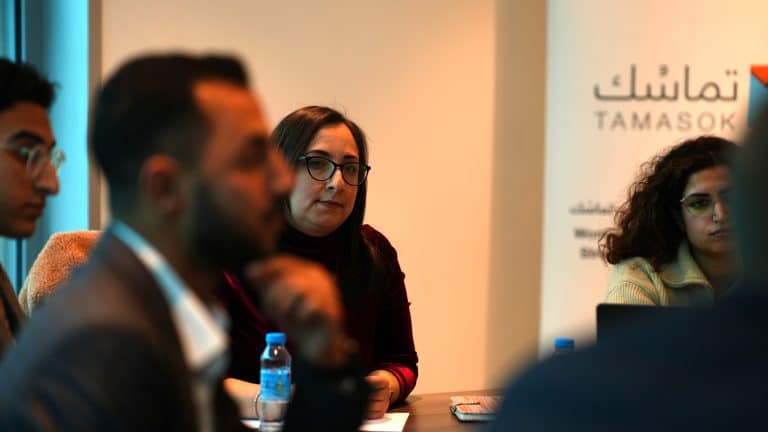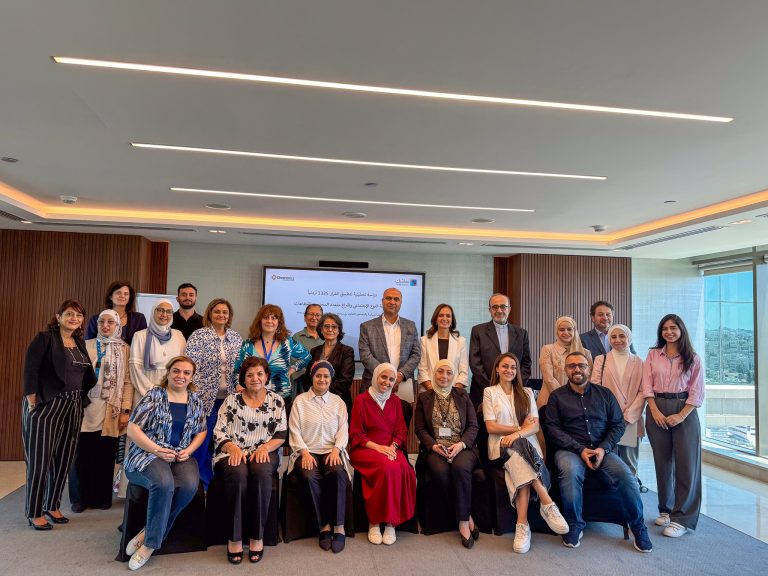



The Jordan Youth Innovation Forum (JYIF) reflects on its role as a Partner for Change within the Tamasok Programme, highlighting key achievements in policy development, capacity building, and youth engagement.
The efforts of the Jordan Youth Innovation Forum (JYIF) come as part of the Tamasok Programme, implemented by Chemonics UK in partnership with Generations For Peace (GFP) and funded by the UK Foreign, Commonwealth & Development Office (FCDO). The programme aligns with JONAP-II (2022–2025) to support the implementation of UN Security Council Resolution 1325 (UNSCR 1325) on Women, Peace, and Security (WPS) in Jordan. Operating across all 12 governorates, Tamasok has played a critical role in empowering women, supporting civil peace, and fostering gender-sensitive policy development.
As a Partner for Change in the Tamasok Programme, JYIF worked extensively to enhance its internal policies, equip youth workers with essential GBV prevention strategies, facilitate meaningful policy discussions with young people, and integrate international research insights into training and advocacy efforts. These efforts have strengthened youth participation, institutional policies, and community-driven advocacy for GBV prevention, ensuring that the Programme’s impact extends beyond its formal conclusion.
A key component of JYIF’s involvement in the Tamasok Programme was the review and enhancement of its internal policies, ensuring that they reflect the highest standards in GBV prevention, workplace safety, and gender-sensitive governance. The organization undertook a comprehensive policy update, integrating measures that establish clear reporting mechanisms, protection policies, and accountability frameworks to create a safe and inclusive environment for all stakeholders.
This internal restructuring was essential in aligning JYIF’s operations with international best practices, making it a model for youth organizations seeking to incorporate gender-responsive policies into their governance structures. By strengthening its institutional policies, JYIF has not only reinforced its own commitment to gender equality but has also laid the groundwork for sustained, long-term impact in youth programming.
Ensuring that staff and youth workers had the necessary knowledge and skills to address GBV effectively was a central focus of the Tamasok Programme. JYIF facilitated a series of targeted training sessions, equipping staff and youth workers with practical intervention strategies and in-depth understanding of GBV-related challenges.
These sessions covered workplace harassment, online violence, digital safety, and community-based prevention mechanisms, providing youth workers with structured tools to recognize, prevent, and respond to GBV across different platforms. By embedding capacity-building efforts within its strategy, JYIF ensured that those who work closely with young people are equipped to create safer spaces, provide support, and advocate for policy improvements.
Recognizing the importance of youth voices in shaping policy, JYIF actively engaged young people from across Jordan in policy discussions focused on GBV prevention and response. Through focus group discussions and structured dialogues, youth participants were encouraged to analyze current policies, assess their effectiveness, and contribute to the development of policy recommendations that reflect their experiences and needs.
These discussions revealed key insights into gaps in legislation, the need for stronger enforcement of workplace protections, and the importance of integrating youth perspectives into national GBV policies. By facilitating these conversations and ensuring that young people had access to policy-making spaces, JYIF reinforced the principle that youth are not just beneficiaries of policy changes but active contributors to shaping a more inclusive legal framework.
One of the most significant contributions of JYIF to the Tamasok Programme was its collaboration with researchers from Harvard and Stanford universities, bringing global expertise into local training and policy efforts. This collaboration played a crucial role in enriching youth training sessions, informing policy discussions, and developing research-backed intervention strategies.
Through this partnership, international best practices, comparative policy frameworks, and data-driven insights were integrated into training programs for youth workers and young participants, ensuring that the approach to GBV prevention was informed by the latest research and global standards.
The impact of this research-driven approach was evident in both youth engagement and institutional strengthening. By merging theoretical knowledge with field applications, JYIF ensured that young people were not only equipped with information but also empowered with practical solutions that they could implement in their communities.
A critical outcome of JYIF’s involvement in the Tamasok Programme was the development of a comprehensive GBV training manual, designed to serve as a long-term resource for youth workers, civil society organizations, and policymakers. This manual consolidates:
By compiling structured guidance on GBV prevention and policy advocacy, this manual ensures that the knowledge gained through the Programme remains accessible and actionable, even beyond its completion. It stands as a testament to JYIF’s commitment to long-term impact and capacity building in the fight against GBV.
As the Tamasok Programme reaches its conclusion, JYIF remains dedicated to continuing its efforts in gender equality, youth engagement, and policy reform. The progress made throughout the Programme has laid a strong foundation for future initiatives, and JYIF plans to expand its policy advocacy efforts, enhance its training programs, and strengthen partnerships with local and international organizations.
While the formal implementation of the project may be ending, its impact continues through the knowledge, policies, and networks established over its duration. Moving forward, JYIF will build on the achievements of Tamasok to ensure that gender-sensitive policies remain a priority, youth participation in decision-making is strengthened, and GBV prevention efforts continue to evolve.
The consortium is comprised of : Chemonics – Uk , Generations for Peace – Jordan





